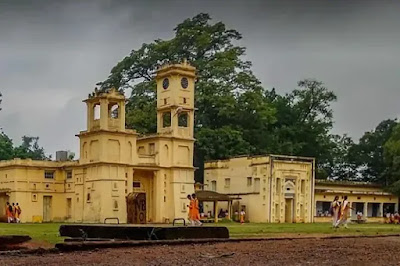The trouble with college in India
Sure, there is something in what I want and also who I am speaking with and people who speak with me often have a limited objective in mind: A British accreditation of some sort! But I am beginning to suspect that the special place of college in India may have a role in this failure to imagine college to be anything more than a place to get a piece of paper.
My hypothesis is that this difference has something to do with the history of college in India. Its peculiarity - a colonial institution enabling social mobility within the colonial context - is well entrenched in the Indian higher education policy and how the middle classes see the college.
In Britain and Western Europe, colleges were conceived as training grounds for clergy and lawyers, residential institutions which not only attended to academic requirements (which was very few in most cases) but also served as a community. It's this part - belonging to a community (hence, one was admitted to the Bachelorship of Arts, rather than completing a BA) - that was the essence of the college. The American model drew on this tradition and then in the nineteenth century, from the German ideas of reaserch universities. Throughout the west, the collge represented a community, a way to build one's identity in the adult world.
Further, because of this community ideal, the development of character has been part of college's mandate, at least since the enlightenment. Of course, the reality often lagged behind the ideal and even today, as college admission scandals in America show, the moral claim is often a convenient lie. Yet, the development of moral character is always an expectation from college education, even when the reality diverges from the dream.
College in India, in contrast, was a gift from the colonial administration. It was conceived with a limited objective - making Indians learn English and work for the Raj - and nothing else. The idea of building community and individual character was completely alien to this plan. The idea that college can teach moral behaviour was repugnent to Indian families sending their children to the colleges; the colonial administration also resisted all moral or religious instructions in the college curriculum, lest that cause social disturbance. Reverend Lalbehari De, later a Christian and noted novelist, was admitted by his father into Alexander Duff's General Assembly institution in Calcutta but was told not to bother about moral education at the college: College's role was just to train him in English and help him get a job. This was back in 1834.
Therefore, college in India got on with the 'human capital theory' prematurely, becoming a place for getting a degree - which hopefully leads to a job eventually - and nothing else. After Independence, the new Indian state vested its educational ambitions in elite technical institutions, presumably to take the command of the public-sector led economy. The reality indeed diverged from this ideal and the 'caste of merit' eventually ran off to California, altering the expectations from the college but not by very much.
In this context, then, India's New Education Policy 2020 makes very interesting reading. Its aspirations set on a moral regeneration, the policy uses human capital justifications at every step. It invokes ancient Hindu 64 arts, famous for its invocation by Vatsayan for erotic success, as the nearest thing to Western liberal arts education ideal and argues for a new educational imagination built around them. But it's still not the moral character - or citizenship - that count as the goal of education: College is left in its safe colonial box of values-free credential factory.
This, then, is the key challenge of talking about college in India. The college has a very specific place in Indian psyche and it's well entrenched after two hundred years of lacking imagination. The last debate about the moral worth of the college - a debate which lost its way with the emergence of bureaucratic state after the independence - was in the late nineteenth and early twentieth centuries, when a group of diverse thinkers, including Rabindranath Tagore, Sir Syed Ahmed, Sir Annamalai Chettiar and Lala Lajpat Rai, tried to reimagine education in their own way. But, as I mentioned, those ideas are largely forgotten, hidden under the rubric of nationalism and revivalism.
In many ways, notwithstanding many attempts of reform, the college has essentially remained the same in India.


Comments